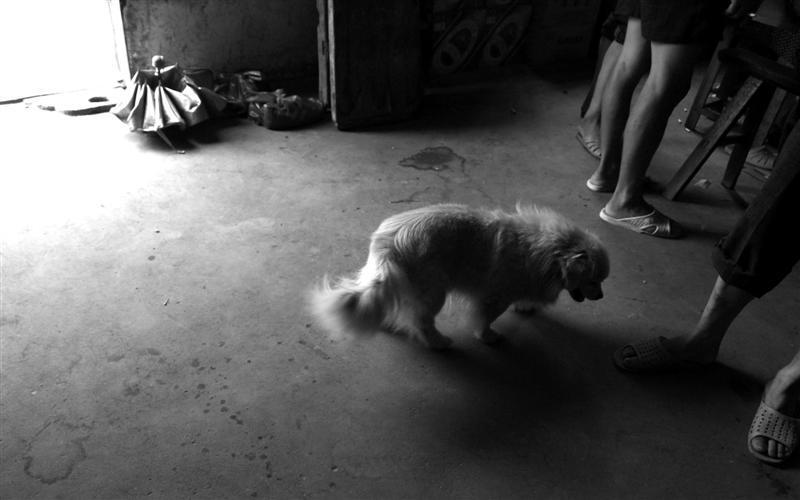| Basic & Common Chinese Words & Phrases for tourists | |
|---|---|
| Jul 16, 2006 07:41 | |
 | Maybe it's useful for tourists to China. You can also listen to the video from here: http://media.odeo.com//files/ How are You? Ni Hao Ma Also commonly shorten to Ni Hao. This is likely to be the first Chinese words that you will ever need to learn. Useful as a greeting or a ice-breaker. Suitable for use with all ages and professions. Remember to use the Chinese phrase, Ni Hao, whenever you meet a Chinese friend or neighnor. Thank You. Xie Xie. Another polite term that is easy to remember and use. Very Good. Hen Hao. This is useful when giving praise for a job or task well done. Also useful as a reply to anyone who says "Ni Hao Ma?' to you. Ni Hao Ma? (How are you?) Hen Hao (Very Good) No Good Bu Hao. This is useful when there is a need to comment on a shoddy or incomplete job or task. Can also be used as a reply to Ni Hao Ma? but may not be such a good reply. Ni Hao Ma? (How are you?) Bu Hao (No Good) Very Expensive. Hen Gui. When bargaining at the shops, this is the best term to use when driving a hard bargain. Don't want or No. Bu Yao. This is the best term to use for touts - street hawkers who approach you at every tourist stop to ask you to buy things. Bu Yao....will stop them in their track. This is beautiful. Hen Piao Liang. Use this phrase to praise something that is nice or beautiful. May also be used when meeting a pretty girl too! Taxi. Di Shi. Di Shi is the correct term but you should be understood even if you use the English word for Taxi. They sound alike anyway. Good Bye or See You Again. Zai Jian. Well, I guess this is another term that will be easily understood even if the English word is used. Excuse Me. Jie Guo. There is always a crowd in touristy areas. There are so many Chinese who wants to see the same monuments too. Rather than push your way through the crowd, using the term Jie Guo may just open the path ahead for you! Receipt. Fa Piao. Always ask for the receipt or Fa Piao at the shops or from a taxi. This may be useful if you need to complain about a fraud or shoddy product. Also useful if you leave behind your bag or camera in the taxi. I don't want. Wo Bu Yao. Useful when refusing a tout or when offered a drink too many at the Dinner table. |
| Feb 5, 2007 22:57 | |
 | Interesting differences in some of the above phrases Here in Chongqing a TAXI is referred to as a Da di and I always thought the real name was the unpronouncable Chu1zu1qi4che1 and when I first arrived I would often be greeted with this stange one. 'Have you eaten yet?. I hardly ever hear it now but then I very seldom hear a greeting unless it's the ubiquitious greeting of 'welcome' from some, but not all shop assistants and restaurant staff. What is it? 'Huan ying ni' Although I think the shops use something a little different. I used to think they were saying 'Good morning' in English of course until I heard the same greeting after lunch and in the evenings. Good list. Keep adding to it .......zai na'r ? another good phrase to know for Where is .....s/thing??? Helpful if the direction can be pointed out rather than an oral discription of where to find something i.e. bus or train station or hotel. |
| Mar 24, 2008 14:50 | |
 | how much is this? - dou shao qian? (do-all sha-wu chee-ann) dou1 shao3 qian2 after getting a reply, usually you would say, Tai Gui Le (ta-ee goo-ee ler) tai4 gui4 le2 which means that's too expensive! (the proprietor will then whip out a calculator and starts the haggling with you) |
| Apr 16, 2008 04:37 | |
GUEST09138  | how do we say ' we are looking for vegetarian food: we do not eat onion, garlic, egg, oyster sauce, fish, sea food or meat |
| Apr 16, 2008 04:52 | |
 | Hey, guest09138. In Chinese, we say "我们要素菜。我们不吃洋葱,大蒜,鸡蛋,蚝油,鱼,海鲜或者其他肉类" |
| Apr 17, 2008 21:46 | |
 | I do not want to eat meat = Wo bu yao chi rou. vegetable dish (not necessarily vegan) = su cai (soo tsay) seafood = haixian (high shi-an) onion = cong (tsong) meat = rou (row) fish = yu (ewe) garlic = suan (swan) chicken egg = jidan (jee dan) duck egg = yadan (yah dan) The pronounciation hints are approximations. You can consult this great dictionary for other words: http://www.chinese-tools.com/ |
| Apr 17, 2008 22:04 | |
 | MUDDIEDKNEES is right. Here it is: wǒ men yào sù cài. wǒ men bù chī yáng cōng, dà suàn, jī dàn, háo yóu, yú, hǎi xiǎn huò zhě qí tā ròu lèi. |
Page 1 of 15 < Previous Next > Page:
Post a Reply to: Basic & Common Chinese Words & Phrases for tourists







 Copyright © 1998-2026 All rights reserved.
Copyright © 1998-2026 All rights reserved.